Английский язык для юристов. Предпринимательское право - [8]
To be effective, an acceptance must be unequivocal, which means that the acceptance must not change any of the terms stated in the offer. Under common law, this stipulation is known as the mirror image rule.
Under the mirror image rule, the terms stated in the acceptance must duplicate the terms in the offer. If the acceptance changes or qualifies the terms in the offer, it is not an acceptance but a counteroffer. A counteroffer is a response to an offer in which the terms of the original offer are changed. No agreement is reached unless the counteroffer is accepted by the original offerer.
In contracts for the sale of goods, as long as there is a definite expression of acceptance, a contract will result even though an acceptance has different or additional terms. If both parties are not merchants, the different or additional terms are treated as proposals for amendment to the contract. If the parties are both merchants, however, the different or additional terms become part of the contract unless (a) they make an important difference, (b) the offerer objects, or (c) the offerer limits acceptance to its terms.
Acceptance may result from the conduct of the offeree. Actions and gestures may indicate the offeree's willingness to enter into a binding agreement.
As a general rule, silence is not an acceptance. If, however, both parties agree that silence on the part of the offeree will signal acceptance, then such an acceptance is valid.
Another exception to the general rule occurs when the offeree has allowed silence to act as acceptance. The offerer cannot force the offeree into a contract by saying silence will mean acceptance. The offeree, however, can force the offerer into a contract if the offerer established the silence condition.
A rejection comes about when an offeree expresses or implies refusal to accept an offer. Rejection terminates an offer and all negotiations associated with it. Further negotiations could commence with a new offer by either party or a renewal of the original offer by the offerer. Rejection is usually achieved when communicated by the offeree.
A revocation is the calling back of the offer by the offerer. With the exception of an option contract and a firm offer, an offer may be revoked anytime before it has been accepted. The offerer has this right, despite what might appear to be a emphasis moral obligation to continue the offer. An offer may be revoked by communication, automatic revocation, passage of time, death or insanity of the offerer, destruction of the subject matter, or the subsequent illegality of the contract.
An offer may be revoked by the offerer communicating that intention to the offeree before the offer has been accepted. Revocation is ineffective if the acceptance has already been communicated, as by mailing the acceptance in response to a mailed offer. Direct communication of revocation is not required if the offeree knows about the offer's withdrawal by other means.
When the terms of an offer include a definite time limit for acceptance, the offer is automatically revoked at the expiration of the time stated.
An option contract is an agreement that binds an offerer to hold open an offer for a predetermined or reasonable length of time. In return for this agreement to hold the offer open, the offerer receives money or something else of value from the offeree. Parties to an option contract often agree that the consideration may be credited toward any indebtedness incurred by the offeree in the event that the offer is accepted. Should the offeree fail to take up the option, however, the offerer is under no legal obligation to return the consideration.
Option contracts remove the possibility of revocation through death or insanity of the offerer. The offeree who holds an option contract may demand acceptance by giving written notice of acceptance to the executor or administrator of the deceased offerer's estate or to the offerer's legally appointed guardian.
A special rule has emerged in international law. This rule holds that no consideration is necessary when a merchant agrees in writing to hold an offer open. This is called a firm offer.
Exercise 1. Comprehension questions:
1. What is an offer?
2. What is to be done in order to remove any doubt about contractual intentions of the offer?
3. What information should the offer include?
4. What is a cost-plus contract?
5. What does a current market price contract suppose?
6. What are the ways to transmit the offerer's proposal?
7. What is a public offer?
8. In what cases are acts and conduct of the proposing successful?
9. Who has a right to accept an offer/ how is an offer rejected?
Exercise 2. Find in the text English equivalents to the following:
Договор на условиях оплаты фактических расходов с начислением определенного процента от этих расходов; договор на условиях оплаты по текущим рыночным ценам; предложение товара или ценных бумаг по твердой цене; приглашение сделать оферту; адресат оферты; оферент; оферта, обращенная к неопределенному кругу лиц; отклонение; аннулирование.
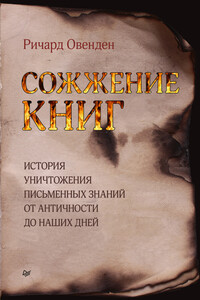
На протяжении всей своей истории люди не только создавали книги, но и уничтожали их. Полная история уничтожения письменных знаний от Античности до наших дней – в глубоком исследовании британского литературоведа и библиотекаря Ричарда Овендена.
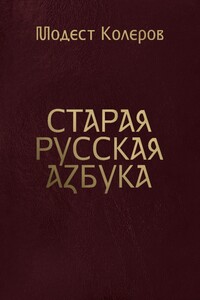
«Старая русская азбука» – это не строгая научная монография по фонетике. Воспоминания, размышления, ответы на прочитанное и услышанное, заметки на полях, – соединённые по строгому плану под одной обложкой как мозаичное панно, повествующее о истории, философии, судьбе и семье во всём этом вихре событий, имён и понятий.В формате PDF A4 сохранен издательский макет.
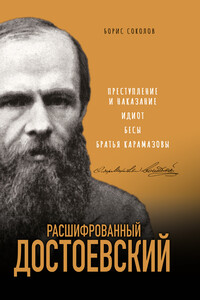
Книга известного литературоведа, доктора филологических наук Бориса Соколова раскрывает тайны четырех самых великих романов Федора Достоевского – «Преступление и наказание», «Идиот», «Бесы» и «Братья Карамазовы». По всем этим книгам не раз снимались художественные фильмы и сериалы, многие из которых вошли в сокровищницу мирового киноискусства, они с успехом инсценировались во многих театрах мира. Каково было истинное происхождение рода Достоевских? Каким был путь Достоевского к Богу и как это отразилось в его романах? Как личные душевные переживания писателя отразились в его произведениях? Кто был прототипами революционных «бесов»? Что роднит Николая Ставрогина с былинным богатырем? Каким образом повлиял на Достоевского скандально известный маркиз де Сад? Какая поэма послужила источником знаменитой легенды о «Великом инквизиторе»? Какой должна была быть судьба героев «Братьев Карамазовых» в так и ненаписанном Федором Михайловичем втором томе романа? На эти и другие вопросы о жизни и творчестве Достоевского читатель найдет ответы в этой книге.
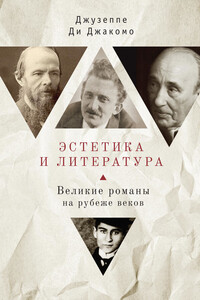
В книге Джузеппе Ди Джакомо рассматривается творчество ряда наиболее важных и значимых писателей девятнадцатого и двадцатого веков, от Флобера до Беккета, от Достоевского до Кафки, в тесной связи с анализом работ таких философов и теоретиков литературы, как Лукач, Бахтин, Рикёр, Беньямин и др. Выделяются основные направления и темы, поднимаемые в романе двадцатого века: проблемы смысла, времени, памяти, а также взаимоотношений между автором и героем. Книга издается в сотрудничестве с «Элиталия» – Институтом итальянского языка и культуры Русской христианской гуманитарной академии (www.centroelitalia.ru).
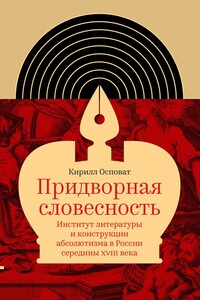
Институт литературы в России начал складываться в царствование Елизаветы Петровны (1741–1761). Его становление было тесно связано с практиками придворного патронажа – расцвет словесности считался важным признаком процветающего монархического государства. Развивая работы литературоведов, изучавших связи русской словесности XVIII века и государственности, К. Осповат ставит теоретический вопрос о взаимодействии между поэтикой и политикой, между литературной формой, писательской деятельностью и абсолютистской моделью общества.

В книге рассказывается история главного героя, который сталкивается с различными проблемами и препятствиями на протяжении всего своего путешествия. По пути он встречает множество второстепенных персонажей, которые играют важные роли в истории. Благодаря опыту главного героя книга исследует такие темы, как любовь, потеря, надежда и стойкость. По мере того, как главный герой преодолевает свои трудности, он усваивает ценные уроки жизни и растет как личность.